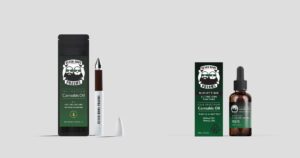A proposed St. Louis County ordinance that would have banned intoxicating hemp products from being sold outside licensed dispensaries has died after facing significant opposition from retailers and distributors. This proposed hemp-derived THC ban highlights the ongoing struggle across the United States to regulate hemp-derived THC products that occupy a legal gray area between traditional hemp and marijuana.
St. Louis County Councilwoman Lisa Clancy officially dropped the legislation during Tuesday’s council meeting, citing lack of consensus among stakeholders. The Missouri Independent first reported this development, noting that Clancy withdrew the bill just before another council member planned to offer a substitute version.
“After engaging with stakeholders and hearing a lot of thoughtful discussion between stakeholders and also the council, I have come to the conclusion that there is not a pathway at this time or a consensus to move forward on this,” Clancy stated during the meeting.
The failed legislation represents another example of how local and state governments nationwide are struggling to address the regulatory vacuum surrounding intoxicating hemp products that can produce effects similar to marijuana while operating outside existing cannabis frameworks.
Industry Opposition Proves Decisive
The bill faced fierce resistance from multiple industry sectors, including convenience stores, hemp companies, and product distributors. This opposition mirrors similar conflicts that have emerged across the country as governments attempt to regulate hemp-derived intoxicating products.
Earlier on the day of the bill’s withdrawal, the Missouri Cannabis Trade Association had urged council members to abandon the local approach in favor of statewide regulation. Andrew Mullins, executive director of MoCannTrade, argued that a patchwork of county-level regulations would be insufficient to address public safety concerns.
“While a patchwork of regulations and bans across Missouri’s 114 counties is certainly better than the current wild west reality,” Mullins said, “it wouldn’t give parents, teachers and law enforcement the peace of mind they need to hold the bad actors selling and making these products accountable.”
The trade association’s position reflects the broader industry preference for comprehensive state-level regulation rather than fragmented local ordinances that could create compliance challenges across different jurisdictions.
National Regulatory Challenges Mirror Missouri’s Struggles
Missouri’s difficulties regulating intoxicating hemp products reflect a nationwide trend where states are grappling with products that exist in legal limbo. Several states have taken different approaches, with mixed results.
California has implemented some of the most restrictive measures, effectively banning many intoxicating hemp products outside their regulated cannabis program. The state has pursued enforcement actions against retailers selling unregulated THC products, demonstrating one approach to addressing the regulatory gap.
Texas provides another instructive example of regulatory challenges. The state has attempted to regulate intoxicating hemp products through multiple legislative sessions but has repeatedly failed to pass comprehensive legislation. After two special sessions failed to produce results, Texas Governor Greg Abbott was compelled to issue an executive order addressing hemp regulation, though this approach has limitations compared to comprehensive legislative solutions.
These state-level struggles illustrate why the Missouri Cannabis Trade Association and other industry groups prefer coordinated statewide approaches over local patchwork regulations.
The Hemp-Marijuana Regulatory Gap
The current regulatory confusion stems from the 2018 Farm Bill, which legalized hemp at the federal level while maintaining marijuana’s controlled substance status. This created space for products that contain THC—the intoxicating component associated with marijuana—while being marketed as hemp-derived.
Missouri law prohibits marijuana products from being sold outside licensed dispensaries, which operate under strict regulatory oversight including seed-to-sale tracking systems. Yet, thousands of gas stations, convenience stores, and other retailers across Missouri—and many other states without regulated intoxicating cannabinoids—currently sell THC gummies, beverages, and vapes that produce effects similar to marijuana.
The distinction, according to producers, lies in the source material. Producers claim these products come from hemp, not marijuana. However, experts testify that sophisticated testing and tracking systems can distinguish between hemp-derived and marijuana-derived THC products, but these systems are absent from the unregulated market.
Some retailers have implemented voluntary age restrictions—Total Wine, for example, has self-imposed purchasing limits—but no government agency currently regulates these products’ sale, distribution, or age restrictions.
Public Health Concerns Drive Regulatory Push
Supporters of regulation point to significant public health and safety concerns with the current unregulated system. Unlike licensed marijuana products, which must undergo testing for potency, pesticides, and contaminants, hemp-derived THC products operate without similar quality controls.
Lab and cannabis experts have testified that without proper tracking and testing systems, consumers cannot be certain about product contents, potency, or safety. This uncertainty is particularly concerning given that these products are often marketed and sold alongside conventional consumer goods in gas stations and convenience stores.
The lack of age restrictions represents another public health concern. While licensed marijuana dispensaries must verify customer age and maintain detailed records, many retailers selling hemp-derived THC products do not implement similar safeguards, potentially making these intoxicating substances more accessible to minors.
State Action or Local Patchwork on Hemp-Derived THC Ban?
Missouri Councilwoman Clancy indicated that while she withdrew the current bill, the issue may return to the county level if state lawmakers fail to act during their upcoming session beginning in January.
“I’m hopeful that the state will pick this up in their session this coming winter,” Clancy said. “I think all of us on the council will be watching it carefully.”
This cautious approach highlights the difficult position local governments face in addressing issues that would benefit from state-level regulation, especially when state action has repeatedly stalled.
The Missouri Cannabis Trade Association’s call for state-level action rather than local regulation reflects industry preference for uniform standards across jurisdictions.
However, if state lawmakers again fail to pass comprehensive legislation, more counties may follow St. Louis County’s example and attempt local solutions.
Path Forward for Cannabis Regulation
The death of the St. Louis County bill represents more than just a local regulatory setback—it illustrates the challenges facing cannabis policy as legal markets expand while regulatory frameworks struggle to keep pace with industry innovation and market realities.
As Missouri lawmakers prepare for their upcoming session, they face the challenge of crafting legislation that can satisfy competing interests while addressing legitimate public health concerns. The failure of previous compromise efforts suggests that finding middle ground will require significant political will and buy-in from all parties.
For now, Missouri’s intoxicating hemp products will continue operating in regulatory limbo, available widely but without the oversight mechanisms that govern traditional marijuana products.
















